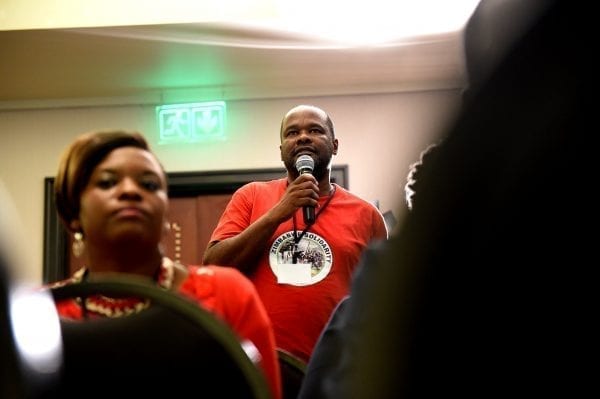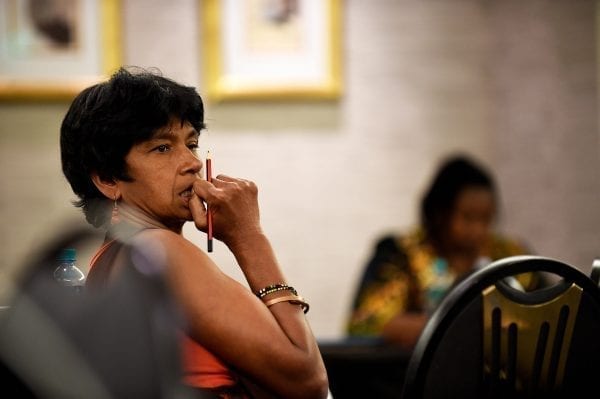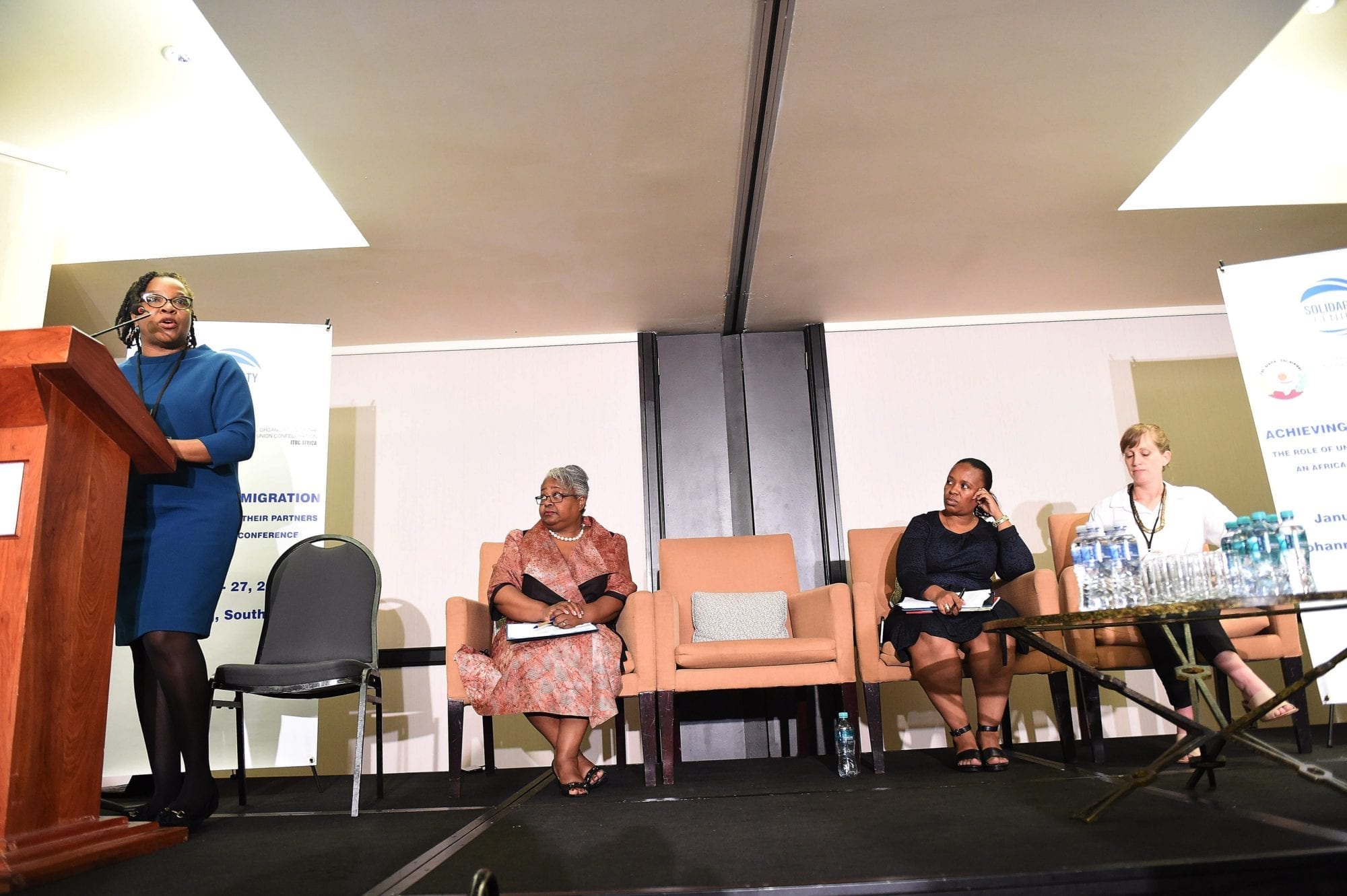“We want to make our voices heard and strong in Africa and globally. Our voices will be strong,” Joel Odigie told the more than 130 union leaders, migrant worker rights advocates and top international human rights officials in the closing session of the Solidarity Center labor migration conference in Johannesburg, South Africa.
“This wasn’t just an event,” says Odigie, coordinator of human and trade union rights for the International Trade Union Confederation-Africa (ITUC-Africa), “this was a process that is feeding to so many things.

Participants at the Solidarity Center labor migration conference developed concrete strategies for empowering migrant workers. Credit: Solidarity Center/Evidence Holdings
“We see your passion,” he says, minutes before conference participants broke out into labor solidarity songs from the United States and across Africa.
Throughout the conference, “Achieving Fair Migration: Roles of African Trade Unions and Their Partners,” union leaders and migrant worker rights advocates strategized on how to improve migrant worker rights in Africa.
Following three days of discussions, dialogue and networking, participants arrived at concrete next steps around union cross-border cooperation, pre-departure assistance for workers seeking to migrate, organizing migrant workers and empowering African workers migrating to the Gulf Cooperation Council countries (Bahrain, Kuwait, Oman, Qatar, Saudi Arabia, and the United Arab Emirates).
Unions and Civil Society Organizations Working to Empower Migrant Workers
Earlier this morning, participants heard from speakers based in the United States, South Africa and the Arab Gulf region on their efforts to build networks between unions and civil society organizations to improve the working conditions of marginalized workers in a discussion moderated by Solidarity Center Africa Region Director Imani Countess,
Tanya Wallace-Gobern, executive director of the National Black Worker Center Project in North Carolina, described the expansion of U.S. worker centers, which initially focused on migrant workers, to encompass African Americans.
“Black worker centers in the South are in response to declining working conditions and declining manufacturing jobs. They are a reaction to disparate pay and discrimination,” says Goban-Wallace. Black workers in the American South historically have had little or no access to joining unions, and employers have sought to break strikes by hiring black workers.

More than 130 union leaders and migrant worker rights advocates took part in the Solidarity Center labor migration conference. Credit: Solidarity Center/Evidence Holdings
The 12 black worker centers in United States provide employment aid to the underemployed and remove employment barriers to formerly incarcerated. But increasingly, says Wallace-Goban, full-time workers are contacting the center because they are experiencing racial slurs, hostility, harassment and assault on the job because the are black.
From the Congress of South African Trade Unions (COSATU), Zanele Lungie Matebula, deputy secretary of international relations, described the federation’s efforts to improve the workplace conditions of migrant domestic workers, nearly all of whom are employed in the informal economy.
In the Gulf Cooperation countries, migrant workers represent the majority of the workforce yet have few rights, including no right to form unions, says Francesca Riccardone, Solidarity Center Gulf regional program director.
Riccardone described the efforts by unions and community organizations, such as the Nigerians in Diaspora Organization (NIDO) in Qatar, to directly assist migrant workers.
Unions in countries from which workers migrate can assist by pushing governments to enact bilateral or multilateral labor agreements that include protections for workers.
The bottom line, says Riccardone: “Migration needs to work for workers.”
More Fair Labor Migration Conference Coverage
- Find full coverage of the conference on the Solidarity Center website here.
- See a photo essay on the stories of migrant workers.
- Check out Twitter with the hashtag #FairMigration and the Solidarity Center Facebook page.

